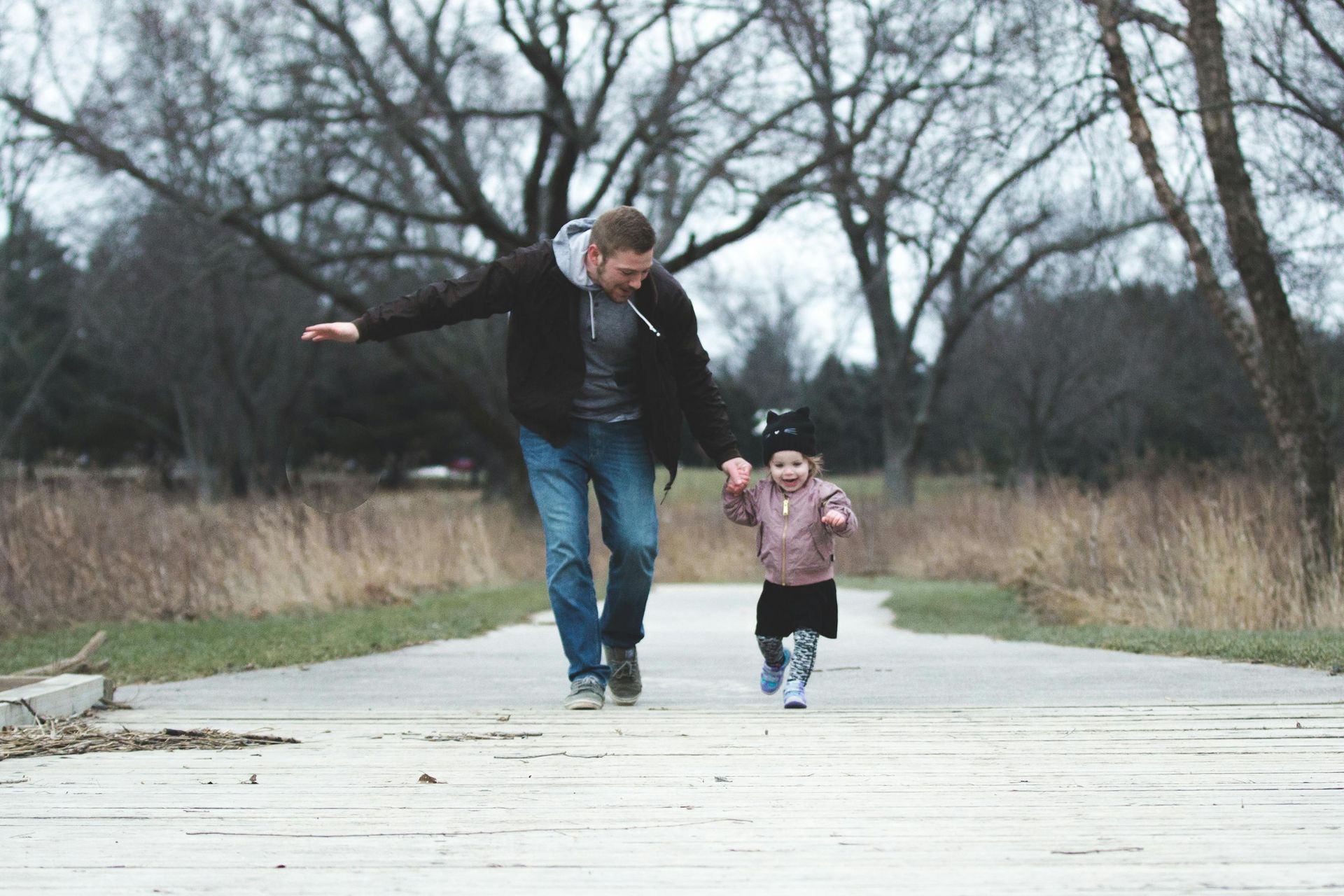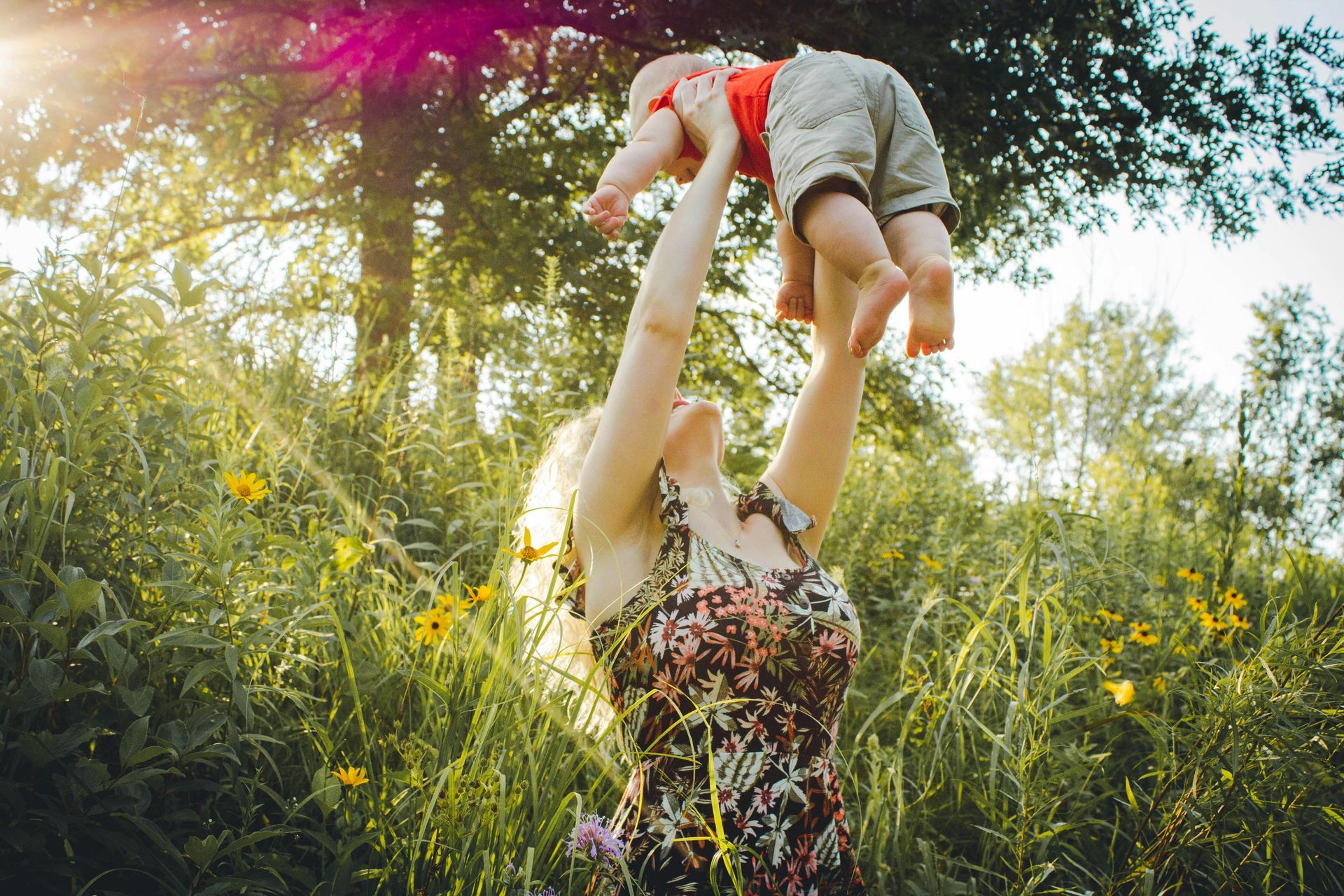Our Blogs
Dive into our latest articles

Coping with Borderline Personality Disorder During College Years College can be an exciting yet overwhelming chapter in life. For students living with Borderline Personality Disorder (BPD) , the challenges of academic pressure, social dynamics, and newfound independence can feel even more intense. The good news? With the right strategies and support, it’s possible to thrive during these years. Understanding BPD in the College Context BPD is a mental health condition characterized by emotional dysregulation, fear of abandonment, and difficulties with self-image and relationships. In college, these symptoms can be amplified by: Stressful transitions (moving away from home, adapting to new routines) Academic pressure Social uncertainty (forming friendships, dating) Lack of structure compared to high school Recognizing these triggers is the first step toward managing them effectively. Practical Coping Strategies 1. Build a Support Network Counseling Services: Seeking a counselor with the skills to provide support and resources. Look for counselors trained in Dialectical Behavior Therapy (DBT) , which is highly effective for BPD. Check out our counselors at Connected Counseling and how they can help. Peer Support Groups: Joining mental health clubs or online communities can help you feel less alone. Trusted Friends: Share your needs and boundaries with those you trust. Campus Group: Join a campus sport, hobby, or faith-based group to grow connections with those with the same values 2. Create Structure Daily Routines: Set consistent times for meals, classes, homework, and sleep. Planner or Apps: Use tools to organize assignments and deadlines. Have a study buddy to keep you accountable. Self-Care Blocks: Schedule time for relaxation, hobbies, and mindfulness. 3. Practice Emotional Regulation DBT Skills: Techniques like mindfulness, distress tolerance, and emotion regulation can help manage intense feelings. Grounding Exercises: When overwhelmed, focus on sensory details (e.g., “What can I see, hear, feel right now?”). Name 5 things that you can see Name 4 things you can touch/feel Name 3 things you can hear Name 2 things you can smell or taste Name 1 positive affirmation you need to hear Journaling: Track triggers and coping successes. 4. Set Healthy Boundaries Communicate Clearly: Express needs without fear of rejection. Identify what you need and ask yourself how you would want this need communicated by a friend. Avoid Overdependence: Balance closeness with independence. Finding close friends is helpful, but a dependence on them can be more harmful. Recognize Red Flags: If a relationship feels unstable or harmful, seek support. Would you say or do these things to a friend? If someone is treating you poorly, communicate your needs. Create space if these boundaries are not respected. 5. Plan for Crisis Moments Emergency Contacts: Keep numbers for campus security, mental health hotlines, and trusted friends. Crisis Kit: Include calming items like a stress ball, soothing playlist, or affirmations. Know Your Resources: Familiarize yourself with local hospitals or crisis centers. (see below) When to Seek Professional Help If you experience persistent suicidal thoughts, severe self-harm urges, or feel unable to cope, reach out immediately : National Suicide Prevention Lifeline (U.S.): 988 Intensive Outpatient Center: St. Vincent Stress Center in Indianapolis is a wonderful option. Emergency Services: Dial 911 if in immediate danger Counseling Practices: Having a long-term, consistent therapist during the college years is very important for stability. Check out our counselors at Connected Counseling if you are looking for more help. Final Thoughts Living with BPD during college is challenging, but it’s not impossible. With the right tools, support, and self-compassion, you can navigate this period successfully. Remember: asking for help is a sign of strength, not weakness .

DBT Skills Explained: Practical Tools for Managing Trauma Dialectical Behavior Therapy (DBT) is built around four core skill sets that empower individuals to manage emotions, cope with stress, and build healthy relationships. Here’s a deep dive into each skill area and how they can help children, teens, and women recovering from trauma. 1. Mindfulness: Staying Present Why it matters: Trauma often pulls people into the past or future, causing anxiety or flashbacks. Mindfulness anchors them in the present moment. Key Skills: Observe: Notice thoughts, feelings, and sensations without judgment. Describe: Put words to your experience (“I feel anxious”). Participate: Engage fully in the moment without overthinking. Be present. Practical Example: For Teens: Practice “5-4-3-2-1 grounding”—name 5 things you see, 4 you feel, 3 you hear, 2 you smell, 1 you taste. For Adults: Use mindful breathing during triggers—inhale for 4, hold for 4, exhale for 6. 2. Distress Tolerance: Surviving the Storm Why it matters: Trauma triggers can lead to impulsive behaviors. These skills help you ride out the wave without making things worse. Key Skills: TIP: Change body chemistry (Temperature, Intense exercise, Paced breathing). Self-soothe: Use senses—listen to calming music, hold something comforting. Radical Acceptance: Accept reality as it is, even if painful. Say no to the suffering of the "what if" and be present in "what is". Practical Example: For Children: Create a “calm box” with favorite toys, scents, and textures. For Adults: Practice radical acceptance statements like “This is hard, but I can handle it.” 3. Emotion Regulation: Taking Back Control Why it matters: Trauma often causes overwhelming feelings. These skills help you understand and manage emotions effectively. Key Skills: Check the Facts: Are your feelings based on facts or assumptions? Opposite Action: Do the opposite of what your emotion urges if it’s unhelpful. PLEASE: Take care of Physical health, avoid drugs, get enough sleep, eat well. Practical Example: For Teens: If sadness urges isolation, try opposite action—call a friend or go for a walk. For Adults: Keep a mood journal to track triggers and patterns. 4. Interpersonal Effectiveness: Building Healthy Connections Why it matters: Trauma can lead to isolation or unhealthy relationships. These skills foster trust and assertiveness. Key Skills: DEAR MAN: Describe, Express, Assert, Reinforce, Mindful, Appear confident, Negotiate. GIVE: Be Gentle, act Interested, Validate, use an Easy manner. FAST: Be Fair, no Apologies for existing, Stick to values, be Truthful. Practical Example: For Teens: Use DEAR MAN to ask parents for more independence respectfully. For Adults: Practice saying “no” without guilt using FAST skills. Why These Skills Work DBT doesn’t just teach coping—it builds resilience and self-empowerment. By combining acceptance with actionable strategies, individuals learn to navigate life’s challenges without being controlled by trauma. Want to learn more? Reach out to one of our therapists , located in Carmel, IN today!

What Is EFIT and How It Helps Women and Teens Struggling with Anxiety and Depression Anxiety and depression are among the most common mental health challenges today, affecting millions of women and teens worldwide. These conditions often leave individuals feeling overwhelmed, disconnected, and unsure of how to break free from cycles of fear and sadness. While traditional talk therapy can help, many people need a deeper approach—one that addresses the root of emotional pain and fosters lasting change. This is where Emotionally Focused Individual Therapy (EFIT) comes in. EFIT is a transformative, evidence-based method that helps people reconnect with their emotions, heal attachment wounds, and build resilience from the inside out. Understanding EFIT Emotionally Focused Individual Therapy (EFIT) is grounded in attachment theory and humanistic experiential therapy . Developed by Dr. Sue Johnson, EFIT evolved from Emotionally Focused Therapy for couples and applies its principles to individual work. Rather than viewing emotions as problems, EFIT sees them as powerful guides for healing. Through structured sessions, clients learn to identify, process, and transform emotional experiences that have been driving anxiety, depression, and relational struggles. Why EFIT Works for Anxiety and Depression Anxiety and depression often stem from unresolved emotional pain and unmet attachment needs. EFIT addresses these roots by: Identifying Core Emotions : Helping clients uncover and safely process emotions like shame, fear, and sadness. Strengthening Emotional Regulation : Teaching skills to calm emotional storms and respond in healthier ways. Healing Attachment Wounds : Rewriting patterns formed by early experiences of neglect or inconsistency, fostering secure internal bonds. EFIT for Women Women often face unique stressors—balancing roles, societal expectations, and relational pressures—that can intensify anxiety and depression. EFIT provides a safe space to explore these challenges , validate emotional experiences, and build a coherent sense of self-worth. By fostering emotional security, EFIT empowers women to navigate life with confidence and resilience . EFIT for Teens Adolescence is a critical period for identity formation and emotional development. Teens struggling with anxiety or depression often feel isolated or misunderstood. EFIT helps by: Teaching emotional awareness and regulation. Addressing attachment-related fears (e.g., abandonment or rejection). Creating corrective emotional experiences that promote self-esteem and resilience. Who Might Benefit from EFIT EFIT can be life-changing for individuals who: Struggle with persistent anxiety or depression . Feel stuck in negative emotional cycles or overwhelmed by emotions. Have experienced trauma or attachment wounds . Want to improve self-worth and emotional resilience . Seek a deeper, experiential approach beyond traditional talk therapy. Conclusion EFIT is more than a therapy technique— it’s a pathway to emotional freedom and self-connection . By helping individuals understand and transform their emotional experiences, EFIT offers hope and healing for women and teens facing anxiety and depression. If you or someone you love is searching for a way to move beyond symptoms and create lasting change, EFIT may be the key to unlocking a healthier, more connected life. Learn more about EFIT and how our therapists at Connected Counseling might be a good fit for you.

Dopamine and Sensory Regulation: A Parent’s Guide to Supporting Emotional Balance As parents, we often notice how certain activities can either calm our children or send them into a whirlwind of energy and emotion. Behind these shifts is a powerful brain chemical: dopamine . Known as the "feel-good" neurotransmitter, dopamine plays a key role in motivation, pleasure, attention, and emotional regulation. Understanding how sensory experiences affect dopamine can empower parents to help their children stay balanced and regulated throughout the day. 🧠 What Is Dopamine? Dopamine helps transmit signals in the brain related to reward, pleasure, and motivation. When dopamine levels are optimal, children feel focused, engaged, and emotionally stable. Too little dopamine can lead to low energy, difficulty concentrating, and irritability. Too much can result in hyperactivity or impulsivity. 🎨 Sensory Experiences That Increase Dopamine Stimulating sensory input can boost dopamine levels, especially when it’s novel, exciting, or rewarding: Movement : jumping, dancing, climbing Music : upbeat tunes, drumming Visuals : bright colors, dynamic videos Tactile play : slime, sand, water Novelty : new foods, games, environments Use these to energize a child who is sluggish or disengaged. 🌙 Sensory Experiences That Decrease Dopamine Calming sensory input helps reduce overstimulation and bring dopamine levels back to a regulated state: Deep pressure : weighted blankets, tight hugs Slow movement : rocking, gentle yoga Soft sounds : white noise, nature sounds Dim lighting : cozy corners, reduced screen time Warmth : baths, snuggling Use these to calm a child who is overstimulated or emotionally dysregulated. 🛠️ How Parents Can Use This Knowledge Create a sensory toolkit Observe and adapt to your child’s preferences Use sensory breaks during transitions Balance stimulation and calm Schedule set times in the day to check your child's regulation and help them meet their needs based on that information Collaborate with occupational therapists and mental health therapists for personalized strategies Age-Specific Tips for Using Sensory Input to Support Regulation Infants (0–12 months) Increase dopamine : Gentle bouncing, peek-a-boo, colorful mobiles, soft music Decrease dopamine : Swaddling, white noise machines, rocking, warm baths Tip : Use rhythmic routines and consistent sensory cues to help babies feel secure and regulated. Toddlers (1–3 years) Increase dopamine : Dancing, sensory bins, water play, finger painting Decrease dopamine : Snuggles with a favorite blanket, quiet story time, dim lighting Tip : Offer sensory choices to help toddlers express preferences and build self-regulation skills. Preschoolers (4–5 years) Increase dopamine : Obstacle courses, music games, imaginative play Decrease dopamine : Deep pressure activities (like pillow squishes), slow yoga poses, quiet corners Tip : Use playful language to guide transitions between high and low stimulation activities. School-Age Children (6–12 years) Increase dopamine : Sports, creative projects, exploration-based learning Decrease dopamine : Weighted lap pads during homework, nature walks, breathing exercises Tip : Encourage self-awareness by helping kids identify what sensory input helps them feel “just right.” Teens (13–18 years) Increase dopamine : Music playlists, social interaction, physical challenges Decrease dopamine : Journaling, mindfulness apps, cozy environments Tip : Respect their autonomy—invite them to co-create sensory strategies that work for their unique needs. 💡 Final Thought Every child is unique, and their sensory needs may change from moment to moment. By tuning into how sensory experiences affect dopamine and emotional regulation, parents can offer compassionate, science-backed support that helps their child thrive—at every age. Learn more about how at Connected Counseling , in Carmel Indiana incorporates this sensory knowledge into mental health services.

Managing Separation Anxiety with Toddlers Separation anxiety is a normal part of toddler development, but it can be tough—for both the child and the caregiver. Here are practical, compassionate strategies to ease the transition and build your toddler’s confidence. What Is Separation Anxiety? It’s the distress toddlers feel when separated from their primary caregivers. It typically peaks between 18 months and 3 years, and can show up as crying, clinginess, or tantrums during drop-offs or goodbyes. How to Help Create a Goodbye Ritual A special hug, wave, or phrase (“See you after snack time!”) gives your child predictability and comfort. Keep Goodbyes Short and Sweet Lingering can increase anxiety. Be calm, confident, and loving—then leave. Practice Separation Start with short separations at home or with trusted caregivers to build confidence. If you can practice this at the scene of distress, do so. If necessary, reach out to a therapist to help you with these transitions. Stay Consistent Routine helps toddlers feel secure. Stick to regular drop-off times and pick-up routines. Also praise your child for their ability to handle the distress that came during the day. "Wow, look how you were able to handle your big feelings from today. This morning was really scary and you got through it!" Foster a Relationship with Another Safe Adult Is there a safe, consistent adult that you can help your child establish trust with? At school, this might mean getting there 10 minutes early and having your child, you, and the teacher spending a few minutes together. Do a short activity that involves all three of you. Then have your child and the teacher do the activity while you sit back. Your child is building this relationship and will be much more likely to feel safe with this new adult. If you can't do this, simply having the same caregiver receive your child at drop off can be helpful. Offer a Comfort Object A favorite stuffed animal or blanket can provide reassurance when you're away. You can also provide a transition object like a stamp on the hand, a picture of the two of you, a button in the pocket, etc. Something that reminds your child that you are there with them and will be back to pick them up. Talk About It Use simple language to explain where you’re going and when you’ll be back. Books about separation can also help. The Invisible String by Patrice Karst is a wonderful book to help kids feel close to their caregivers while they are away. Use feelings language . You can prep your child about what is going to happen, but also prep them on the feelings they might experience. "Daddy is going to say goodbye at the door. You may feel a little scared or sad and that's ok. Remember you have your (comfort object, transition object, etc.) if you need help. (Teacher, caregiver, family, etc.) will be there to help you too. Daddy will be back after nap time." Common Mistakes to Avoid Sneaking Away Leaving without saying goodbye may seem easier, but it can break trust and increase anxiety. Showing Your Own Anxiety Toddlers pick up on your emotions. Stay calm and confident to help them feel secure. Giving In to Prolonged Goodbyes Long, emotional farewells can make separation harder. Keep it brief and positive. If you have decided you will give one hug and one high five to say goodbye, do not allow for 6 hugs and 3 high fives. Your child will ask for this. You need to set the boundary to show your child they can handle the goodbye with what you have already established. Punishing Clingy Behavior Separation anxiety is not misbehavior. Respond with empathy, not discipline. Get on your child's level physically and validate the scary feeling they are having. It is so understandable! Of course they want to stay with you! Put yourself in your child's 2 year old shoes for a minute. Changing Routines Frequently Inconsistency can make toddlers feel unsafe. Stick to predictable patterns. Who drops the child off, what you say, what your goodbye ritual is, who receives the child, etc. You can slowly mix this up once the child gets used to this to help them handle change, but do not start with unpredictability. Remember Separation anxiety is a sign of healthy attachment in these toddler years. With patience, empathy, and consistency, your toddler will learn that goodbyes are temporary—and reunions are sweet. Seeking more help with this? Consider Connected Counseling , located in Carmel, IN to walk alongside you and your family as your child finds safety in new relationships.

Healing & Discovery: How Your Enneagram Type Can Reveal Childhood Wounds and True Desires College is a time of transformation. You're discovering who you are, what you want, and how your past has shaped your present. One powerful tool for self-awareness is the Enneagram—a personality framework that not only helps you understand your behaviors but also uncovers the deeper motivations and wounds that drive them. Let’s explore how each Enneagram type can guide you in healing childhood wounds and reconnecting with your authentic desires—with practical healing exercises to support your journey. Type 1 – The Reformer Wound: Feeling only worthy when being “good” or perfect. Wounding Message: "It's not ok to make mistakes" Desire: To be accepted as you are. Healing Exercise: ✨ “Messy Art” Practice – Set a timer for 20 minutes and create something without editing or judging it. Let it be imperfect. Reflect on how it felt to let go of control. Type 2 – The Helper Wound: Believing love must be earned through meeting the needs of others. Wounding Message: "Your needs are not important" Desire: To be loved for simply being. Healing Exercise: 💌 Self-Love Letter – Write a letter to yourself as if from someone who loves you deeply. Focus on who you are, not what you do. Type 3 – The Achiever Wound: Feeling valued only for success. Wounding Message: "Your achievements are what are important" Desire: To be seen for your true self, not the mask you put on to please others. Healing Exercise: 🪞 Mirror Affirmations – Each morning, look in the mirror and say three affirmations that have nothing to do with achievement (e.g., “I am enough just as I am”). Type 4 – The Individualist Wound: Feeling emotionally misunderstood or unseen. Wounding Message: "Your emotions are not welcome" Desire: To be deeply known and connected. To feel special. Healing Exercise: 🎨 Emotion Collage – Use magazine clippings, colors, or drawings to express your current emotional state. No words—just feeling. Then journal about what came up. Type 5 – The Investigator Wound: Feeling emotionally overwhelmed by their environment. Feeling as if their needs are a burden to others. Wounding Message: "Your presence is a problem" Desire: To feel secure and capable and knowledgeable. Healing Exercise: 📖 Voice Journal – Record yourself talking about your feelings instead of writing them. This helps bridge the gap between your inner world and emotional expression. Type 6 – The Loyalist Wound: Growing up in unpredictability or fear. Wounding Message: "Never be too sure of yourself" Desire: To feel safe and supported. Healing Exercise: 🧘 Grounding Ritual – Each morning, place your hand on your heart and say, “I am safe. I trust myself.” Pair this with deep breathing or a short meditation. Type 7 – The Enthusiast Wound: Avoiding pain by chasing pleasure. Wounding Message: "You can't depend on others" Desire: To experience joy without escaping discomfort. Healing Exercise: 🌧️ Sit with Sadness – Set a timer for 10 minutes. Sit quietly and allow any uncomfortable feelings to surface. Journal what you notice without trying to fix it. Type 8 – The Challenger Wound: Feeling the need to be strong to survive. Wounding Message: "Never let your guard down" Desire: To be vulnerable and loved. Healing Exercise: 🤝 Safe Sharing Circle – Choose one trusted friend and share something vulnerable. Let them respond without interruption. Practice receiving support. Type 9 – The Peacemaker Wound: Feeling overlooked or unimportant. Wounding Message: "Your voice doesn't matter" Desire: To be heard and live with purpose. Healing Exercise: 📣 Voice Activation – Each day, speak one truth out loud (to yourself or someone else). It could be as simple as “I don’t want that” or “I need a break.” Why This Matters in College College is more than academics—it's a time to rewrite your story. Understanding your Enneagram type can help you: Break patterns that no longer serve you Heal emotional wounds that still echo from childhood Discover your true desires and live with intention Whether you're journaling, in therapy, or just having deep conversations with friends, the Enneagram can be a mirror and a map. It shows you where you've been—and where you’re meant to go. College is not the only time for self discovery. It is never too late to learn more about yourself and focus on your true desires in life. Don't let your no yesterday keep you from saying yes to healing today! Want to learn more about yourself and the Enneagram? Join us at Connected Counseling , located in Carmel, IN to start your journey of healing and discovery! Have more questions? Reach out to us here!

Parenting a Teen with an Attitude: A TBRI®-Informed Approach Parenting a teenager can feel like navigating a minefield—especially when your teen seems to have an attitude about everything. Eye rolls, sarcasm, defiance, and emotional outbursts can leave even the most patient parent feeling overwhelmed. But what if we told you that behind that attitude is a need for connection, safety, and understanding? Enter TBRI® (Trust-Based Relational Intervention®)—a trauma-informed, attachment-based approach developed by Dr. Karyn Purvis and Dr. David Cross. While originally designed for children from hard places, TBRI offers powerful tools for parenting any teen, especially those who seem emotionally distant or behaviorally challenging. How Do I Manage My Teen's Attitude? 1. See the Need Behind the Behavior TBRI teaches us to look beyond the behavior and ask: What is my teen trying to communicate? An “attitude” is often a mask for: Fear of rejection A need for control in a chaotic world Unmet sensory or emotional needs A history of trauma or attachment wounds Instead of reacting to the sass or shutdown, pause and ask yourself: What need is going unmet right now? It is our job as parents to help our teen find an appropriate way to meet that need instead. 2. Connect Before You Correct Teens are biologically wired to seek independence, but they still crave connection. TBRI emphasizes the power of connection before correction. This means: Making eye contact Using a calm, respectful tone Offering physical proximity (if welcomed) Validating their feelings before addressing behavior Building trust and connection when things are going well This may sound like: “I can see you’re really frustrated right now. I’m here to help, not to fight.” "I believe you. This is really difficult right now. Let's figure it out together." " I understand how frustrating this is. I am on your team and here to help." When teens feel seen and safe, they’re more likely to open up and cooperate. 3. Empower Their Body and Mind TBRI’s Empowering Principles focus on meeting physical and environmental needs. For teens, this might look like: Ensuring they’re getting enough sleep, nutrition, and movement Helping them regulate their emotions through breathing techniques or sensory tools Creating predictable routines and clear expectations Limiting screen time A teen who’s hungry, overstimulated, or exhausted is far more likely to lash out . Empowering them physically helps reduce emotional dysregulation. 4. Offer Choices and Shared Power Teens often push back because they feel powerless. TBRI encourages giving voice—offering choices and inviting collaboration. Instead of saying, “You need to clean your room now,” try: 💬 “Would you rather clean your room before or after dinner?” This small shift gives your teen a sense of control while still meeting your expectations. Teach your teen how to compromise . Compromising is a big part of life and relationships. If parents are not teaching their teens to do this, they will have to learn it in higher risk environments. This may sound like: Parent: "Hey it's your turn to wash the dishes after dinner" Teen: "Can we compromise? My friends are all FaceTiming right now. Can I do the dishes in an hour?" Parent: "Thanks for asking! Yes, I think we can make that work." Your teen needs to learn what their needs are and have permission to use their voice to express them. As you respect this, trust is built and attitude lowers. 5. Stay Regulated Yourself You can’t co-regulate with your teen if you’re dysregulated yourself. TBRI reminds us that our calm is contagious. Before engaging in a power struggle, take a breath. Step away if needed. Model the regulation you want to see in your teen. If you are having a difficult time with your own regulation, we have therapists in Carmel, Indiana who specialize in helping you with that. Learn more here . 6. Repair and Reconnect Conflict is inevitable—but repair is powerful . After a blow-up, circle back with your teen: 💬 “I’m sorry for raising my voice earlier. I care about you, and I want us to work through things together.” This models accountability and reinforces the safety of your relationship. You cannot expect your teen to repair if you are first not willing to do the same. After a fight, ask yourself: "Are we connected? Has the behavior changed? Are we both content?" Until all three of these questions are a yes, there is more work to do. Final Thoughts Parenting a teen with an attitude isn’t easy—but it’s not impossible. Through the lens of TBRI, we learn that behavior is communication, connection is key, and healing happens in relationship. Your teen doesn’t need a perfect parent—they need a present one. And with TBRI, you have the tools to be just that. Learn more about how Connected Counseling in Carmel, Indiana focuses on using a TBRI lens to counsel teens, parents, and children.

Postpartum Self-Care: A Deeper Dive into Healing, Support, and Mental Wellness The postpartum period is often described as a time of joy and bonding—but for many, it also brings unexpected emotional challenges. Between hormonal shifts, sleep deprivation, and the overwhelming responsibility of caring for a newborn, it's no surprise that many new mothers experience postpartum depression (PPD) and postpartum anxiety (PPA). Self-care during this time isn’t just about bubble baths and quiet moments (though those help!). It’s about creating a foundation for mental, emotional, and physical recovery. Let’s explore why postpartum self-care is essential and how to support yourself through depression and anxiety. Why Postpartum Self-Care Is Crucial Your body is healing from one of the most intense physical experiences it can go through. Your mind is adjusting to a new identity, new responsibilities, and new routines. Your emotions are heightened, and you may feel isolated, overwhelmed, or disconnected. Your baby needs you, but you need you too . Understanding Postpartum Depression and Anxiety Postpartum Depression (PPD) PPD affects about 1 in 7 women and can include: Persistent sadness or emptiness Loss of interest in activities Difficulty bonding with your baby Feelings of worthlessness or guilt Changes in appetite or sleep Thoughts of self-harm or hopelessness Postpartum Anxiety (PPA) PPA is less talked about but just as common. Symptoms include: Constant worry or fear Racing thoughts Panic attacks Physical symptoms like heart palpitations or nausea Obsessive thoughts about your baby’s safety Self-Care Tips for Managing Depression and Anxiety 🧠 Mental Health Support Talk to a professional: A therapist specializing in postpartum care can help you process emotions and develop coping strategies. Interested in learning more? Learn how Connected Counseling can help you honor your experience and help you grow through it. Consider medication: If recommended by your doctor, antidepressants or anti-anxiety medications can be safe and effective—even while breastfeeding. Join a support group: Connecting with others who understand your experience can reduce feelings of isolation. 🧘♀️ Emotional Wellness Practice mindfulness: Apps like Headspace or Insight Timer offer short meditations tailored for new moms. Journal your thoughts: Writing down your feelings can help you identify patterns and release emotional tension. Set realistic expectations: You don’t have to be perfect. Focus on small wins and give yourself grace. Check in with yourself consistently: Instead of waiting until you are at a level 10 distress, create space at a level 5. You will thank yourself later that you did! 🛌 Physical Care Prioritize sleep: Sleep deprivation worsens anxiety and depression. Nap when you can, and consider night shifts with your partner. Eat nourishing foods: Omega-3s, antioxidants, and leafy greens support brain health and mood regulation. Move your body gently: Walking, stretching, or postnatal yoga can boost endorphins and reduce stress. Get outside: Sunlight and nature take you outside of your head and into beauty. The vitamin D doesn't hurt either! 💬 Social Support Ask for help: Whether it’s meals, laundry, or watching the baby while you shower—lean on your village. Limit social media: Comparison can fuel anxiety. Curate your feed to include uplifting, honest voices. Stay connected: Even short texts or voice notes to friends can help you feel less alone. When to Seek Help If you experience any of the following, reach out to a healthcare provider immediately: Thoughts of harming yourself or your baby Inability to care for yourself or your child Panic attacks or severe anxiety that interferes with daily life Persistent sadness lasting more than two weeks You are not alone, and help is available. Postpartum mental health challenges are common, treatable, and nothing to be ashamed of. If this is an emergency, locate the nearest hospital. In Carmel, IN we recommend St. Vincent Stress Center for intensive care. We recommend seeking help prior to it being an emergency, however. If you are not sure if therapy would be helpful for you, you can schedule a 15-minute free consultation to see if it is a good fit. Final Thoughts Postpartum self-care is about survival, healing, and empowerment. It’s not selfish—it’s essential . By caring for your mental and emotional health, you’re not only nurturing yourself but also creating a more stable, loving environment for your baby. You deserve support, rest, and compassion. Let this be your reminder: you matter, too.

How to Say No When You’ve Been Conditioned to Say Yes If you’ve ever found yourself saying “yes” when every fiber of your being wanted to say “no,” you’re not alone. Many of us are conditioned—by upbringing, culture, or past experiences—to prioritize others’ needs over our own. Saying “no” can feel like a betrayal, a confrontation, or even a failure. But learning to say “no” is not just a skill—it’s a form of self-respect . Why Saying No Feels So Hard People who struggle to say no often: Fear disappointing others Worry about conflict or rejection Tie their self-worth to being helpful or agreeable Were raised in environments where boundaries weren’t respected Were told saying no is selfish. They believe they need to sacrifice themselves for others in all situations This conditioning can lead to burnout, resentment, and a loss of identity. But the good news? You can unlearn it . Reframing the Narrative Saying “no” doesn’t make you selfish—it makes you self-aware. It means you’re honoring your time, energy, and values. Here’s how to start shifting your mindset: No is a complete sentence. You don’t owe anyone a justification. Boundaries are bridges, not walls. They help build healthier relationships. You’re not responsible for others’ reactions. You’re responsible for your delivery. You can still choose to sacrifice your time or energy by saying yes, but it should be a choice, not an expectation. Practical Ways to Say No Here are some gentle yet firm ways to decline without guilt: The Direct No “No, I’m not able to do that right now.” The Delayed Response “Let me think about it and get back to you.” (This gives you space to decide.) Make sure you do get back to this person to continue a healthy relationship with them. The Redirect “I can’t help with that, but maybe [someone else] can.” The Values-Based No “I’m focusing on [personal goal or priority] right now, so I need to pass.” The Compassionate No “I really appreciate you thinking of me, but I have to say no.” The Prior Commitment No "I would love to but I have a prior commitment. Thanks for thinking of me!" Building Your “No” Muscle Like any skill, saying no gets easier with practice. Start small: Say no to minor requests that don’t align with your priorities. Role-play scenarios with a trusted friend or therapist. Journal about times you said yes when you wanted to say no—and how you’d handle it differently now. Reflect on the reasons behind your yes. Talk with a therapist about where these may come from and how to break this pattern. Final Thoughts You don’t have to be everything to everyone. Saying no is an act of courage, clarity, and care—for yourself and others. When you say no to what drains you, you say yes to what truly matters. Are you ready to start being comfortable saying no? Our therapists at Connected Counseling in Carmel, Indiana are ready to help you reflect on where this comes from and how you can move forward with healthy boundaries. Reach out to us today!

Coping with OCD as a New Mom: Finding Strength in the Chaos Becoming a mother is a life-altering experience filled with love, joy, and—let’s be honest—a fair amount of stress. For new moms living with Obsessive-Compulsive Disorder (OCD), the postpartum period can be especially challenging. The intrusive thoughts, compulsions, and heightened anxiety that characterize OCD can feel overwhelming when paired with the demands of caring for a newborn. But here’s the truth: you are not alone, and you can navigate this journey with strength and grace. Here are some compassionate, practical strategies to help you cope with OCD as a new mom. 1. Acknowledge Your Experience Without Judgment OCD often grows in secrecy and shame. The first step toward healing is acknowledging your thoughts and feelings without judging yourself. Intrusive thoughts do not reflect your character or intentions—they are symptoms of OCD, not truths about who you are. 💬 “I’m having a thought, but that doesn’t mean I’ll act on it. It’s my OCD talking.” 2. Build a Support System Motherhood can feel isolating, especially when you're dealing with mental health challenges. Reach out to trusted friends, family members, or support groups. Connecting with others who understand what you're going through can be incredibly validating. Consider joining online communities for moms with OCD. Talk to your partner about what you’re experiencing. Ask for help with daily tasks when you need it—there’s no shame in that. Tell on yourself when you are struggling! 3. Seek Professional Help Therapy can be a lifeline. Cognitive Behavioral Therapy (CBT), especially Exposure and Response Prevention (ERP), is considered the gold standard for treating OCD. A therapist who specializes in perinatal mental health can tailor treatment to your unique needs as a new mom. Learn more about how Kelly at Connected Counseling in Carmel, Indiana can help! She is trained in ERP and CBT and loves working with postpartum anxiety. 4. Create Gentle Routines OCD often craves control, and motherhood is anything but predictable. Establishing small, flexible routines can help soothe your anxiety without feeding compulsions. Set a calming bedtime ritual for you and your baby. Use checklists to manage tasks without obsessing over them. Practice mindfulness during feeding or diaper changes. Set up consistent times with other moms to remember you are not alone in this struggle. 5. Practice Self-Compassion You’re doing your best—and that’s enough. Motherhood is messy, and perfection is a myth. Be kind to yourself when things don’t go as planned. 💬 “I’m allowed to struggle. I’m still a good mom.” If these negative thoughts keep intruding, EMDR may also be a good fit for you. Learn more here ! 6. Monitor Your Mental Health Postpartum OCD is real and often misunderstood. If your symptoms intensify or interfere with your ability to care for yourself or your baby, reach out to a healthcare provider. Medication, therapy, and lifestyle changes can make a big difference. Set up times with friends to get out of "mom" mode and back into being you! Use the time your baby is sleeping for you to unwind and calm your mind. (I know you want to clean, but others can help you with that). 7. Celebrate Small Wins Every day you show up for your baby is a victory. Celebrate the moments when you resist a compulsion, ask for help, or simply take a deep breath. These small wins build resilience and remind you of your strength. Final Thoughts Coping with OCD as a new mom is not easy—but it is possible. You are not broken. You are not alone. You are a mother doing her best, and that is something to be proud of.

